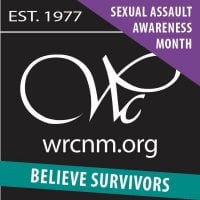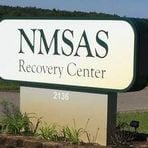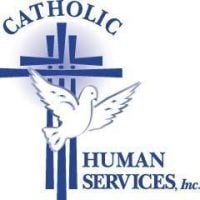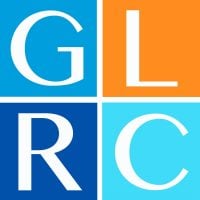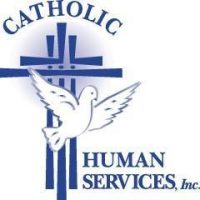Women's Resource Center of Northern Michigan
Drug Rehab Center in Petoskey, Michigan
The Women’s Resource Center of Northern Michigan in Petoskey, Michigan is a non-profit organization providing comprehensive services related to addiction and substance abuse, including prevention, therapy, post-treatment support, and education.
About This Michigan Facility
Women’s Resource Center of Northern Michigan (WRCNM) is a non-profit organization based in Petoskey, Michigan, that provides education and advocacy services to support women and girls in the northern Michigan region. Founded in 1981, the Center provides a wide range of resources including support groups, workshops, individual counseling, and career training. By offering a multidisciplinary approach, WRCNM creates a safe, supportive, and respectful environment for women to explore and gain insight into their personal and professional goals.
WRCNM offers comprehensive, individualized treatment programs for individuals struggling with addiction and substance abuse. The programs incorporate evidence-based practices such as cognitive behavioral therapy, group counseling, individual supportive services, and medication-assisted treatment when needed. In addition, the Center is accredited by the Michigan Department of Health and Human Services and licensed by the Substance Abuse and Mental Health Services Administration. These certifications ensure that individuals enrolled in the program receive the highest quality of care.
Genders
Ages
Modality
Additional
Conditions and Issues Treated
Levels of Care Offered at Women's Resource Center of Northern Michigan
This center offers a variety of custom treatment tailored to individual recovery. Currently available are Outpatient, with additional therapies available as listed below.
Individuals struggling with drug addictions can get help from several treatment options, including inpatient and outpatient programs. Outpatient drug treatment programs can also provide patients with different levels of care, usually depending on the patient’s degree of addiction.
At an outpatient program in Petoskey, a patient will attend a recovery program during the day and return home in the evening. Suppose a patient is struggling with drug addiction. In that case, an outpatient program can serve as an effective transition point during the recovery process.
Therapies & Programs
Individual therapy is a critical component of addiction recovery. It allows the patients to go deep into their core issues and discover how to handle those problems better. Therapy can be conducted in individual sessions as well as group settings. In individual therapy for addiction, the patient meets with their therapist one-on-one to focus on the underlying issues. This allows patients to open up and discuss personal topics they may not feel comfortable discussing in a group setting. This type of therapy can help develop solutions specific to each patient, which helps speed up the recovery process.
Couples therapy is beneficial for couples in which at least one partner has a substance use disorder. This type of therapy can help partners improve communication skills, which is an important factor in a healthy relationship. It can also help partners better understand one another so they have a greater understanding of how the other partner may be feeling.
Benefits of couples therapy include:
- Improvement in communication skills
- Increased understanding of the dynamics within a relationship
- Increased sense of support and trust in the relationship
- Better teamwork between partners/increased willingness to listen and work together
- Enhanced tolerance of each other’s shortcomings
- Improved ability to have open, honest communication with each other
Family therapy is a crucial part of drug treatment and getting sober. It is one of the most effective ways to help addicts stay on the path to long-term sobriety. When a drug addict decides that they want to try and get sober, it takes the support of every person they love to succeed. It can be incredibly difficult for loved ones to watch an addict go through the pain and suffering of withdrawal, but by being there with them and supporting them, they can help to make sure that the addiction never returns.
One of the most important parts of family therapy is the relapse prevention plan. During treatment, therapists and doctors will often sit down with the addict and their family to develop a plan in case the addict ever feels like they want to use again. This plan should involve steps the addict and family can take together to prevent them from relapsing in the future. An addict’s family can play a vital part in helping them to avoid relapse because they can spot the warning signs and help them get back on track before it becomes too much of a problem.
Group therapy helps prevent addicts from feeling isolated or unique in their situation by offering a sense of comfort and fellowship. It also creates a forum for addicts to build their support systems and learn from each other. The group therapy sessions at Women's Resource Center of Northern Michigan occur in a group setting rather than one-on-one to create a safer, controlled environment where addicts feel comfortable.
Trauma therapy helps people dealing with addiction by allowing them to confront the traumas of their past and move past them. It is important to note that trauma therapy should not be confused with PTSD (post-traumatic stress disorder) Rather, it is used to treat the effects of trauma, which are often at the root of addiction.
Dialectical Behavior Therapy was developed in the 1980s to treat chronically suicidal individuals. It is a cognitive-behavioral therapy that combines strategies derived from Zen Buddhism, such as mindfulness training. DBT has been adapted for use with other types of psychiatric problems, including substance abuse and personality disorders. DBT aims to help patients change their thinking and behavior, instead of relying on medication.
Cognitive Behavioral Therapy (CBT) is a common therapeutic approach to help drug addicts. It teaches addicts new ways of thinking and behaving so that they can avoid relapse. There are several forms of CBT used in drug rehabilitation centers.
Cognitive Restructuring helps addicts identify faulty, negative thinking so that they can work together with the therapist to find healthier ways of thinking, resulting in better decision-making.
Cognitive Behavioral Therapy for Addiction uses the principles of CBT to help treat addiction. It focuses on specific aspects of each person’s thinking, feeling, physiology, and behavior. It aims to identify specific problems in these areas and create a personalized treatment strategy.
Payment Options Accepted
For specific insurance or payment methods please contact us.
Women’s Resource Center of Northern Michigan Associated Centers
Discover treatment facilities under the same provider.
No items foundLearn More About Women’s Resource Center of Northern Michigan Centers
Additional Details
Specifics, location, and helpful extra information.
Petoskey, Michigan 49770 Phone Number(231) 347-0067 Meta DetailsUpdated November 25, 2023
Staff Verified
Patient Reviews
There are no reviews yet. Be the first one to write one.
Petoskey, Michigan Addiction Information
Michigan has the second-highest rate of drug and alcohol abuse in the nation. Heroin is linked to more than 50% of the state's hepatitis C cases. Marijuana is the drug most often associated with crimes in Michigan, followed by methamphetamines. Opioids alone are responsible for almost 20% of all drug overdose deaths in Michigan.
Treatment in Nearby Cities
- Ionia, MI (164.7 mi.)
- Northville, MI (216.2 mi.)
- Plainwell, MI (205.3 mi.)
- Bad Axe, MI (145.3 mi.)
- Holly, MI (190.2 mi.)
Centers near Women's Resource Center of Northern Michigan
The facility name, logo and brand are the property and registered trademarks of Women's Resource Center of Northern Michigan, and are being used for identification and informational purposes only. Use of these names, logos and brands shall not imply endorsement. RehabNow.org is not affiliated with or sponsored by Women's Resource Center of Northern Michigan.
